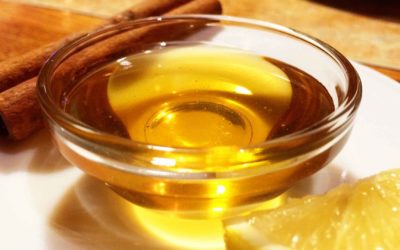
Table of Contents
- What will happen if I eat honey everyday?
- What is the best time to eat honey?
- What is the best way to take honey?
- What kind of honey should I choose?
- How much honey should I have a day?
- What are the disadvantages of the overconsumption of honey?
- Conclusion
It’s no secret that honey is one of nature’s most perfect foods. Loaded with antioxidants, amino acids, minerals, and vitamins, honey has been used for centuries as a natural remedy for many common ailments. But can you drink honey every day without any adverse effects? And is it safe to take honey every day for long periods of time? Let’s explore the benefits and risks of taking honey every day.
What will happen if I eat honey everyday?
In short, nothing bad will happen if you eat honey in moderation every day. There are several potential benefits of regular honey consumption. Honey is a natural source of energy, and it can help to raise blood sugar levels in people who have low blood sugar. honey also contains a range of vitamins and minerals, including iron, calcium, and vitamin C. Additionally, honey has antibacterial and anti-inflammatory properties. Some research even suggests that honey may help to boost the immune system. So, if you’re looking for a healthy way to sweeten your food or get a little extra energy, consider adding honey to your diet.
What is the best time to eat honey?
1. In the morning
Honey is a great way to start your day. It provides you with energy and nutrients that can help you to feel alert and focused. Additionally, honey can help to improve your digestion and reduce inflammation.
2. Before or after a workout

Honey is also a great pre-workout snack. The natural sugars in honey can give you a quick energy boost, while the antioxidants and vitamins can help to reduce inflammation and improve recovery. Honey is also a good post-workout snack as it can help to replenish your glycogen stores.
3. At night
Honey can also be beneficial at night. The natural sugars in honey can help to promote sleep by raising your blood sugar levels. Additionally, the antioxidants in honey can help to protect your body from damage caused by free radicals
What is the best way to take honey?
- The best way to take honey is with a spoon. This allows you to control the amount of honey you are taking in, and you can also savour the original flavour the honey has to offer.
- Another way to take honey is by adding it to your favorite beverage. This can be anything from tea to coffee or even smoothies. Adding honey to your drink can help to improve its flavor and also provides you with some additional health benefits. It is best added to low-temperature beverages as high temperatures might damage the honey.
- You can also use honey in cooking or baking. Honey can be used as a sweetener in many recipes, and can also add a unique flavor to dishes. When using honey in cooking, it is important to remember that it will caramelize at high temperatures, so it is best to add it towards the end of the cooking process.
What kind of honey should I choose?
If you are looking for honey that retains the most nutrients and enzymes, raw honey is the way to go. Raw honey is simply honey that has not been heated or processed in any way. This means that it still contains all of the pollen, propolis, and other beneficial compounds that are present in fresh honey. However, great quality raw honey can sometimes be difficult to find.
Pure honey, on the other hand, is honey that has been filtered to remove impurities such as pollen and wax. Pure honey will usually have a clearer appearance than raw honey, and it can be found on most supermarket shelves. However, some of the beneficial compounds present in raw honey may be lost during the filtering and pasteurizing process.
If you want the most nutritious option, go for raw honey.
How much honey should I have a day?
Are 2 tablespoons of honey a day too much?
The National Honey Board recommends that the average person consume about two tablespoons of honey per day. According to the American Heart Association, women should consume no more than 100 calories worth of added sugars per day, and men no more than 150. This is equivalent to a little over two tablespoons for women, and three tablespoons for men.
However, the amount of honey that an individual should consume depends on a variety of factors, including age, activity level, and overall health. For example, athletes or people who are very active may need to consume more honey to help refuel their bodies after exercise. Additionally, honey contains trace amounts of vitamins and minerals, which can contribute to a person’s daily nutrient intake. Therefore, it is important to consult with a healthcare provider to determine the right amount of honey for each individual.
What are the disadvantages of the overconsumption of honey?
Despite the health advantages of honey, it is high in sugar which can be detrimental to one’s health.
In fact, studies suggest that high-sugar diets can cause obesity, inflammation, insulin resistance, liver problems, and heart disease. It can also lead to a higher risk of certain types of cancer, dementia, and depression.
You should choose high-quality raw honey that still contains its original nutrient value. Otherwise, you might just be consuming sugar.
The main concern about honey is its sugar content. Although honey is beneficial to the body. There is no need to over-consume honey as it might result in adverse effects. For these reasons, it’s important to enjoy honey in moderation.
Conclusion
Honey is a wonderful food that has many health benefits. It can be eaten daily, but it’s important to know the right way to take it and how much honey you should have each day. Choose high-quality honey and enjoy its delicious taste and many health benefits in moderation!



